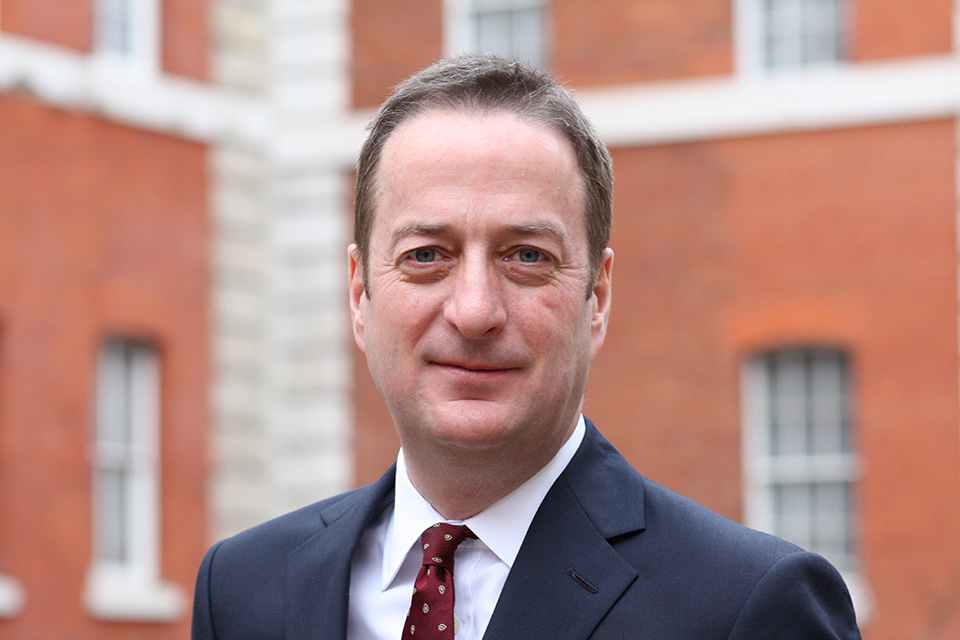Ambassador Quarrey's speech for International Holocaust Remembrance Day
David Quarrey, British Ambassador to Israel, spoke at the International Holocaust Remembrance Day ceremony.

David Quarrey, British Ambassador to Israel said:
I am very proud to be here at the Massuah Institute for the Study of the Holocaust on International Holocaust Remembrance Day. I would like to thank the leadership and staff of the centre and Minister of Justice Ayelet Shaked.
One of the most distressing conversations I have had in my time in Israel was in my first couple of weeks. I was visiting Cafe Britannia, a meeting place for Holocaust survivors, in Eshkol Regional Council. I spoke to several survivors that day, but one conversation really stuck with me. A lady in her 90s who had lived through the Holocaust in Romania told me how, in old age, the memories had got worse. In her youth, as she came to Israel and built a family, a home and a country, she had been able to contain those memories and look to the future. But now, with time for reflection and perhaps some loneliness, the memories of that terrible time – of family members lost and lives devastated - had come flooding back.
It was a stark, terrible reminder of the continuing human cost of the worst crime in history.
As time passes, there are fewer survivors. We must cherish them while we can. The responsibility becomes even greater for all of us – governments, civil society, individuals – to preserve the memory. In the UK, Holocaust Memorial Day has been marked each year since 2001. In 2016, around 6,000 different events took place across the UK. The Holocaust Memorial Day Trust, whose patron is HRH The Prince of Wales, has chosen as its theme for this year – How can life go on? They will ask audiences to think about what happens after genocide and our own responsibilities in the wake of such a crime.
David Cameron, when he was Prime Minister, launched the UK Holocaust Commission to ensure the preservation of the memory. I was with him and the members of the Commission when they met at Yad Vashem in April 2014. One of their main recommendations was that a new Holocaust Memorial should be created. The British Government has since announced that it will be built right next to The Houses of Parliament by the River Thames. The design competition is underway and the memorial should be completed within a couple of years.
The Holocaust Memorial Foundation undertakes many other activities, including ensuring that Holocaust education is a compulsory part of history education for 11-14 year olds; taking 28,000 students and teachers to Auschwitz-Birkenau; and helping the Anne Frank Trust work with more than 50,000 students in British schools.
Holocaust remembrance is vital. But it is also futile if we do not tackle contemporary anti-Semitism. We make a grave mistake if we think this is only a problem of the past.
The UK is one of the safest places in the world to be Jewish. The Jewish community in the UK is stable in terms of numbers, and thriving in every other sense. It makes a precious contribution to Britain. Levels of anti-Semitism are low as measured by international surveys. But we cannot ignore the fact that the number of anti-Semitic attacks has increased in recent years.
Theresa May, both when we she was Home Secretary and now as Prime Minister, has been clear in her determination to fight anti-Semitism. The Government works closely with the Community Security Trust to protect the Jewish community in the UK. And Prime Minister May announced last month that the UK would be one of the first countries formally to adopt the International Holocaust Remembrance Alliance definition of anti-Semitism, and that the British Government would confront all those who seek to undermine the right of Jewish people to live free of fear and harassment.
I pay tribute to the work of the International Holocaust Remembrance Alliance, which has done so much over the last 20 years to rally international support for Holocaust education, remembrance and research. This cannot just be a national responsibility – it requires effective international leadership. Sir Eric Pickles leads this work for the UK. Other organisations such as the OSCE also have a vital role to play. We would like to see the OSCE adopt the IHRA definition of anti-Semitism as soon as possible. And are working with European partners to share best practice, for example from our own Community Security Trust. The CST’s Police Officer’s Guide to Judaism is being translated into several European languages.
For someone of my generation, the Holocaust was one of the central moral facts of our education. Sometimes, as I look at the appalling anti-Semitism and Holocaust denial that can be found so easily online, I wonder if that is still the case today. But then I think of the meeting I have with the Holocaust Education Trust’s young ambassadors. Each year, around 20 of them come from the UK to Israel – none Jewish, but all committed to understanding and preserving the memory of the Holocaust and learning its lessons for our own societies today, as well as getting to know Israel and Judaism. The conversation is profound and inspiring. It gives me hope.
Thanks you again for inviting me to speak here today. It has been a great privilege.